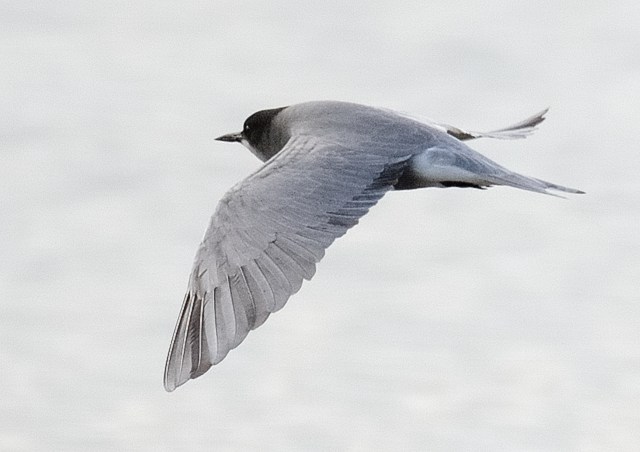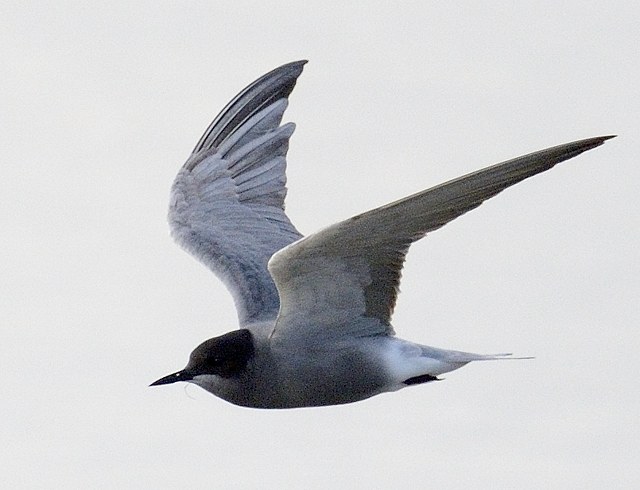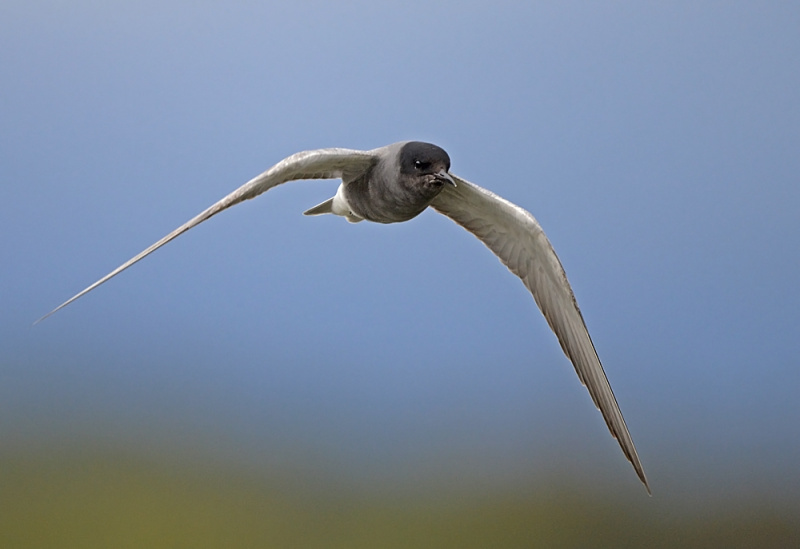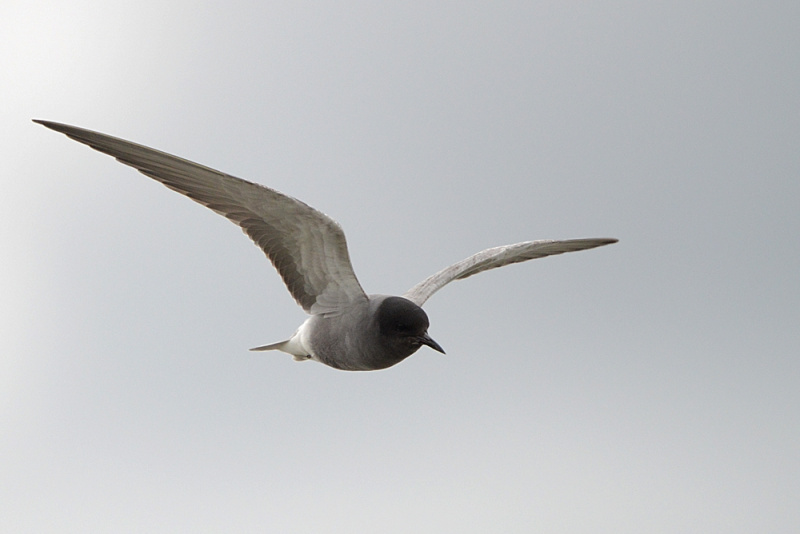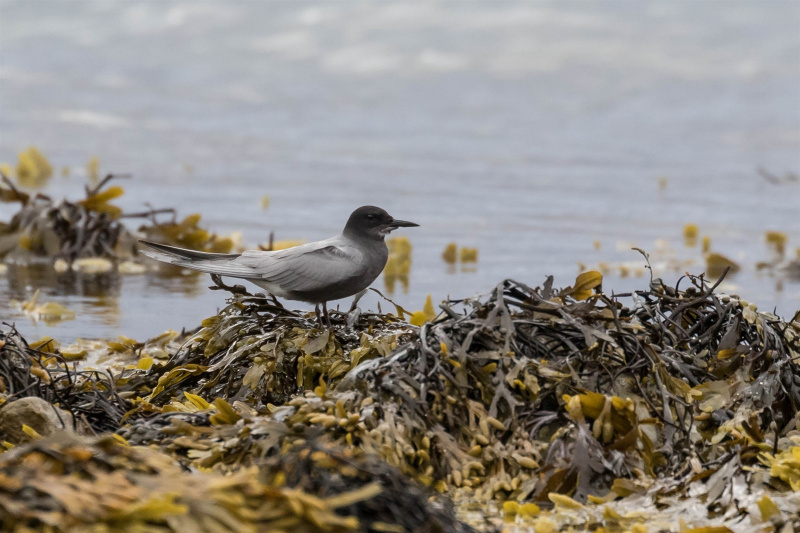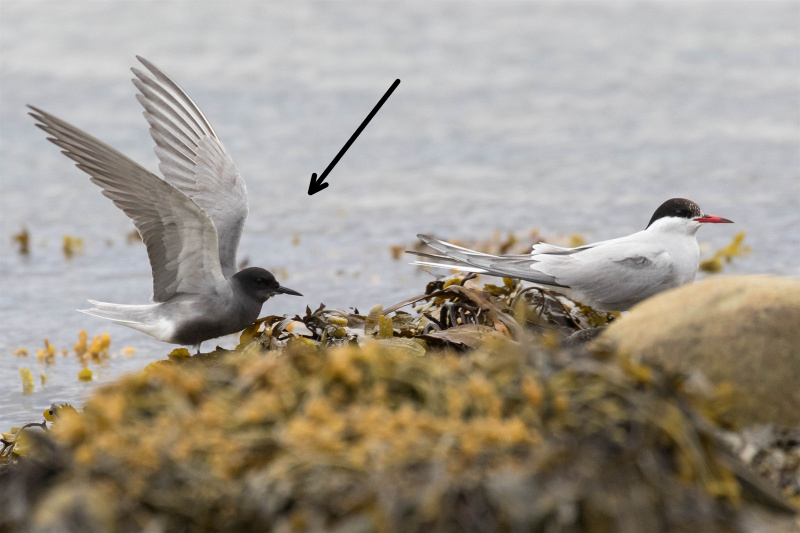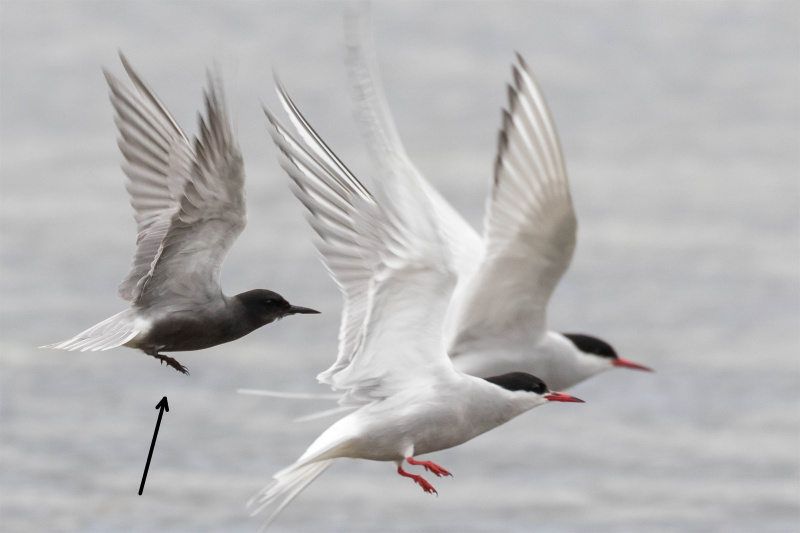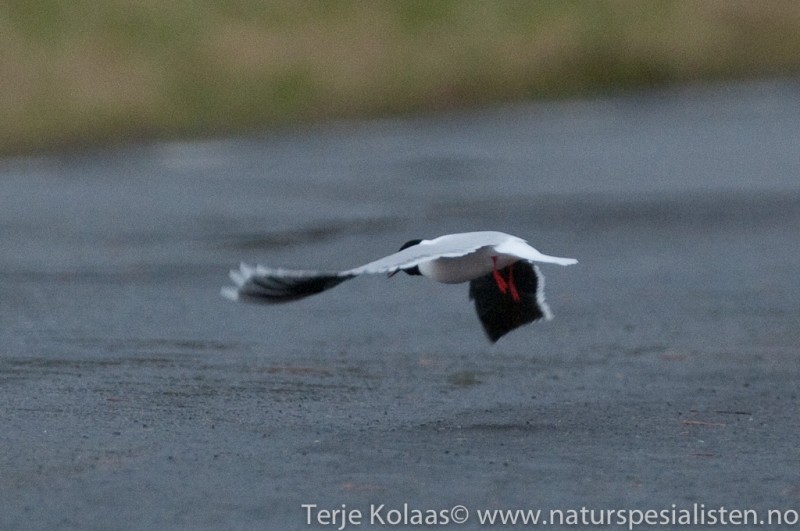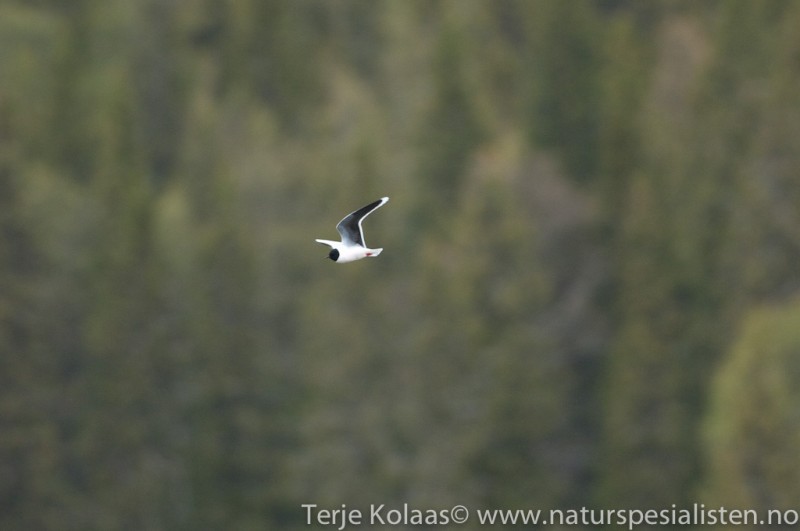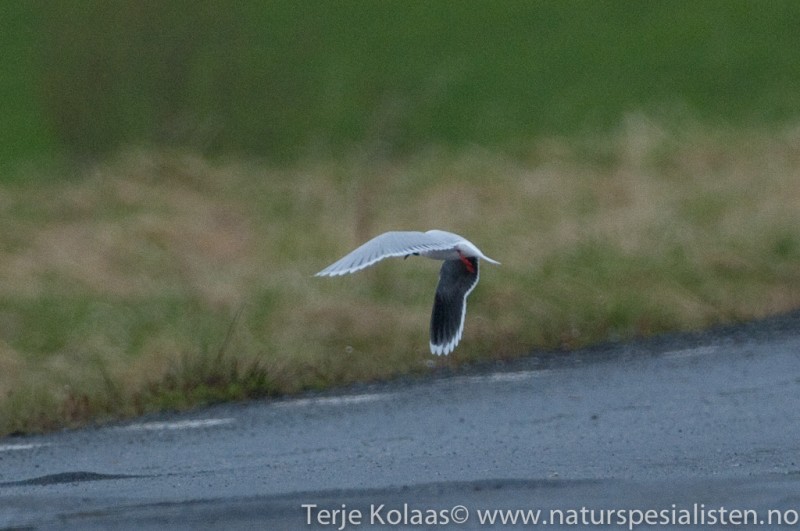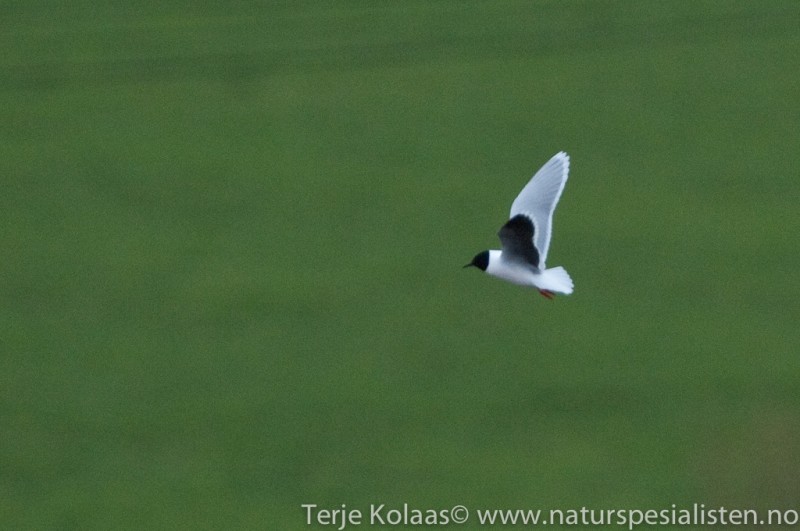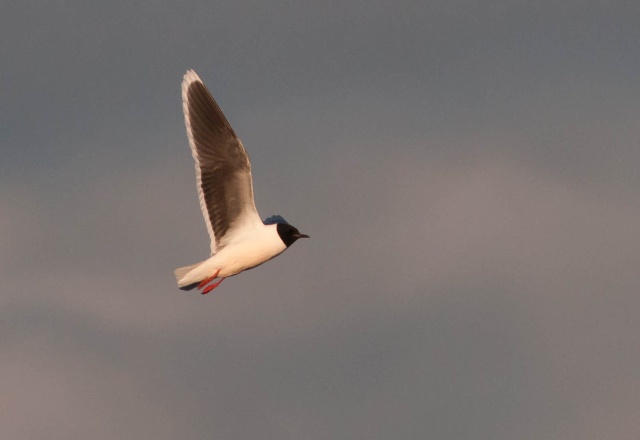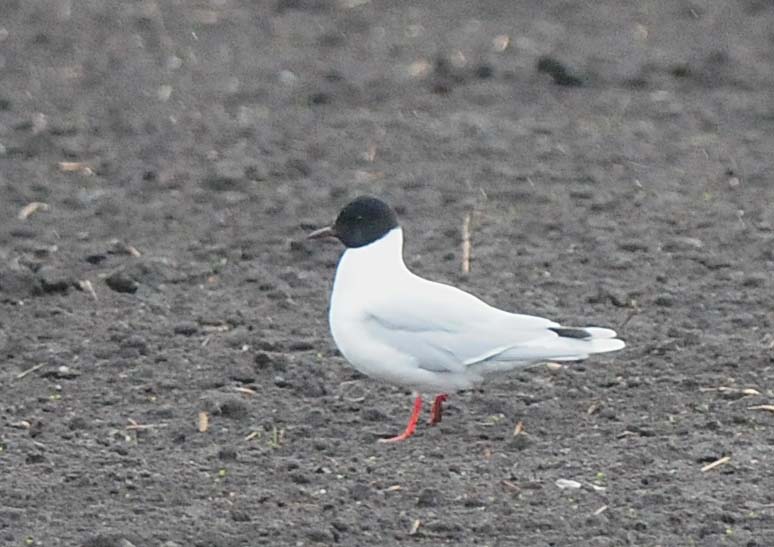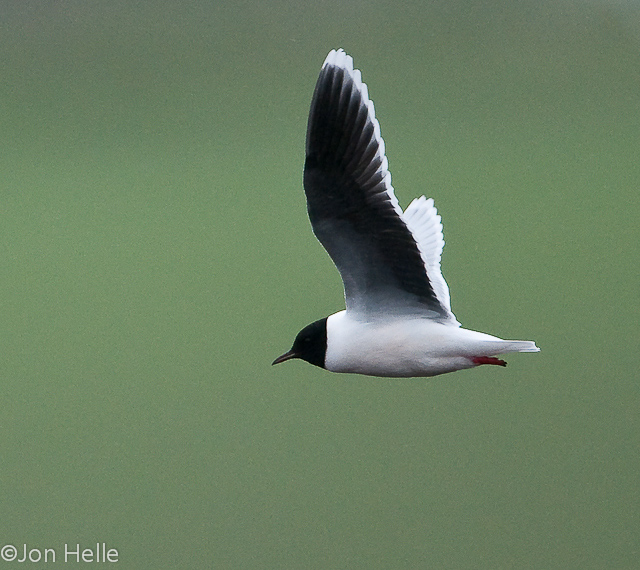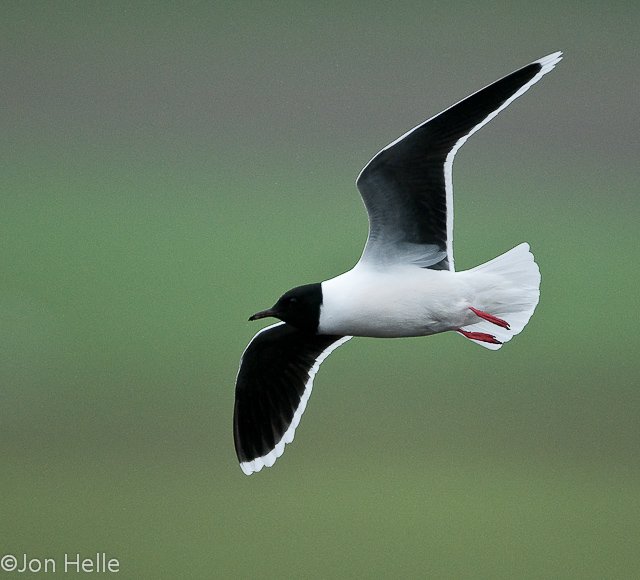Black Tern (Chlidonias niger)
Little Gull (Hydrocoloeus minutus)
Unmistakable in breeding plumage, but otherwise easily confused with other marsh terns. Breeding plumage with black head and belly, but pale underwing and grey rump. When in immature and winter plumage it differs from Common and Arctic tern by smaller size and short, moderately forked tail, and from other marsh terns by slimmer body and wings (compared to White-winged tern), and relatively long, thin bill. Both immature and adult winter show dark front edge of wing, and characteristic dark shoulder patch at wing base. Back is dark in immature birds. Grey rump in all plumages. Flight usually different from Sterna-terns, with erratic dives for no apparent reason, and "aimless" change of direction. Note that when foraging over saltwater, flight becomes more Sterna-like.
Sound:Moderately vocal. Flight call a more or less clear "kleck, or a disyllabic "klee-ake" with accented first syllable. Sometimes slightly rolling "klirr-eke", but never as much as in White-winged Tern. Also a slightly harsher "kreek", but not as raspy as in Whiskered Tern.
Flight call:
Distribution:
Wikipedia: map (se also Xeno-canto below)
Ecology:Birdlife ecology
Links:
Observation.org Latest observations
Image search Flickr NB! May give other species
CCVery small gull with rounded wings and almost tern-like appearance. Underwing black, with broad white trailing edge. Lacks Black-headed Gull's conspicuous white outer primaries. Adult summer plumage with black (not chocolate) hood, that reaches far down on hind-neck. Winter plumage without hood, but with dark cheek-patch and dark cap. Juveniles differs from juvenile Kittiwake in slender body, dark cap, dark patch at trailing base of underwing, faint dark wing-bar and shorter wings. Can, with experience, be identified by fluttering, butterfly-like flight at long distance.
Sound:Repertoire of short, tern-like, hard calls, uttered individually, or in series. E.g. "kep" or "krrk". Also a diagnostic, gull-like, sharp and bouncing "ka-tee,ka-tee,ka-tee", with second syllable rising in pitch.
Contact call:
Distribution:
Wikipedia: map (se also Xeno-canto below)
Ecology:Birdlife ecology
Links:
Observation.org Latest observations
Image search Flickr NB! May give other species
CCSounds:Recorded by Patrick Åberg,http://www.xeno-canto.org ,CC license

 English
English Albanian
Albanian
 Armenian
Armenian
 Bulgarian
Bulgarian
 Catalan
Catalan
 Croatian
Croatian
 Czech
Czech
 Danish
Danish
 Dutch
Dutch
 Finnish
Finnish
 French
French
 Georgian
Georgian
 German
German
 Greek
Greek
 Hungarian
Hungarian
 Italian
Italian
 Latvian
Latvian
 Lithuanian
Lithuanian
 Macedonian
Macedonian
 Norwegian
Norwegian
 Polish
Polish
 Portuguese
Portuguese
 Romanian
Romanian
 Russian
Russian
 Sami : Lule sami
Sami : Lule sami
 Sami : North sami
Sami : North sami
 Sami : South sami
Sami : South sami
 Scientific names
Scientific names
 Serbian
Serbian
 Spanish
Spanish
 Swedish
Swedish
 Ukrainian
Ukrainian

